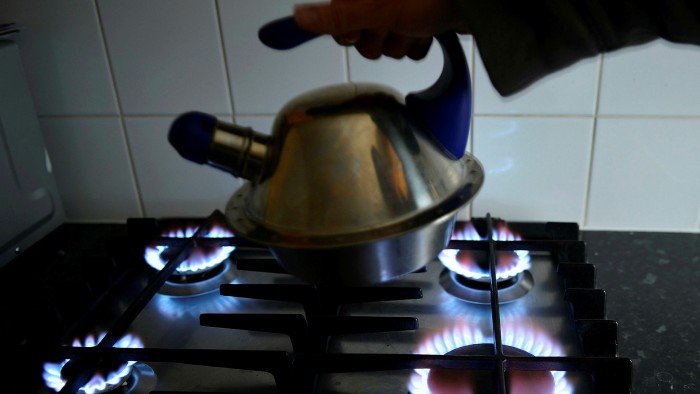What does the natural gas crisis mean for UK consumers?

Simply sign up to the UK energy myFT Digest -- delivered directly to your inbox.
Record high gas and power prices have pushed five smaller energy suppliers out of business since the start of August with fears that more could follow.
The crisis has prompted UK business and energy secretary Kwasi Kwarteng to hold emergency calls with some of Britain’s biggest energy suppliers. But what does this all mean for consumers?
How many people will be affected?
More than 22m British households are connected to the gas grid, with 38 per cent of the UK’s gas demand used for domestic heating and 29 per cent for electricity generation.
Of those, 15m households are on standard tariffs or use prepayment meters, which means their bills are protected by the energy price cap, a maximum rate that suppliers are allowed to charge.
The vast majority of consumers will not be directly affected by the spikes in wholesale gas prices, as most energy companies buy much of their supplies many months in advance and use hedging strategies to prevent short-term price rises being passed on to customers.
However, five smaller suppliers — with a total of 570,000 domestic customers — have already gone out of business since the start of August due to insufficient hedging or weak balance sheets.
There are fears that bigger companies could also fail in the coming days, with as many as 1m more customers predicted to find their suppliers have gone out of business. Meanwhile, more than 40 other small suppliers could also fail in the coming weeks and months.
What happens if my supplier goes to the wall?
In the event of further companies collapsing, Ofgem, the energy regulator, will automatically switch affected customers to new suppliers.
Ofgem has already done this for many of the 570,000 customers of the five failed suppliers so far. It transferred Utility Point’s 220,000 domestic customers to EDF last week. Ofgem will announce the appointment of a new supplier for People’s Energy’s 350,000 domestic customers on Monday.
Earlier this month, it transferred more than 90,000 customers to British Gas from two other failed suppliers, PFP Energy and MoneyPlus Energy.
The transfer can take a few weeks, but gas and electricity supplies will continue until it is complete, at which point the new supplier will contact affected customers.
Once customers have been transferred, they will be placed on what is known as a “deemed tariff” for six months, which is typically the new supplier’s standard variable rate.
During this six-month period, customers can transfer to a different tariff offered by the supplier or switch to a different company and avoid paying a penalty.
At the end of the six months, if customers have not moved, they will be put on the supplier’s standard variable tariff.
Gillian Cooper, head of energy policy for Citizens Advice, advised affected customers to “take a note of meter readings, keep old energy bills and make a note of your account balance”.
She added: “Wait until your new supplier is appointed before cancelling any direct debits. This should all make the transition easier.”
What does this mean if I want to switch?
Consumers looking to save money by switching energy provider will find it all but impossible as hundreds of deals are pulled from the market, pushing up the cost of locking into a fixed-rate contract.
Some UK price comparison websites including Compare the Market have paused energy switching services as energy suppliers restrict the number of tariffs available.
Others, including uSwitch and Moneysupermarket, were offering a fraction of the usual number of switching deals. The uSwitch website warns consumers searching for a quote “you might want to wait for more deals”, stating the rise in wholesale energy costs “has an impact on the number of deals we can offer right now”,
Deals still being offered via comparison sites that the Financial Times examined tended to require that consumers “lock in” to a fixed-price contract for one, two or three years, with most carrying exit penalties ranging from £15 to £100.
Twice weekly newsletter
Energy is the world’s indispensable business and Energy Source is its newsletter. Every Tuesday and Thursday, direct to your inbox, Energy Source brings you essential news, forward-thinking analysis and insider intelligence. Sign up here.
Comments